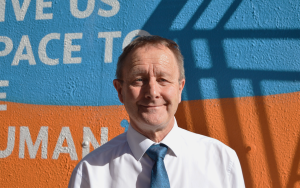Nottingham to take next step towards carbon neutral plan

Nottingham City Council’s plan to become a carbon neutral location by 2028 is set to be adopted by its Executive Board next week.
The vote will be the next phase in a plan that included a two-month consultation earlier this year.
The Council says that the delivery of the Plan over the next year will be adjusted to account for ongoing impacts from Covid-19 on the city. It believes that delivery of this vital and ambitious programme can “spearhead the renewal of the city and provide a stimulus for the local economy” following the impacts of the pandemic.
The Action Plan focuses on five key areas for action:
- Transport – Building on the city’s successful efforts so far to provide high-quality green public transport, encourage take-up of low and no-emission vehicles and facilitate active travel (walking and cycling) across the city
- The built environment – Adding to the 40,000 energy efficiency measures already in local homes and the roll-out of the pioneering Energiesprong retrofit scheme to create net zero homes, the plan will investigate ways to ensure new buildings have the highest possible energy efficiency standards and explore expansion of low carbon heating across the city
- Energy generation – Going beyond the council’s energy from waste operation and huge installation programme of solar panels on council buildings and homes by looking into development and extension of low carbon energy sources to provide affordable and secure local energy
- Waste and water – Maximising the potential of the city’s waste disposal arrangements, which see over 90% reused, recycled, composted or used for energy recovery. Seeking to eliminate the 7% of waste going to landfill, developing repair and reuse facilities and improving water efficiency
- Consumption – Increasing local food production while reducing food waste and consumption of high carbon items, making city events more carbon neutral and tourism more sustainable, encouraging community gardens and food share.
City Council deputy leader and portfolio holder for environment & energy, councillor Sally Longford, said: “We had an excellent response to our consultation about our carbon neutral plans, with strong support for our ambitions and efforts so far. The actions in this Plan are for everyone to share responsibility for, so it’s been great to get a broad range of views on how best we move things forward as a city.
“It’s vital that we put sustainable carbon neutrality at the core of the city and its renewal over the next 12 months and beyond. During the Covid crisis we have all noticed clearer skies and cleaner air and perhaps appreciated wildlife more and maybe returned to slightly simpler ways of life. People have had to get used to using their cars less, walking and cycling more, perhaps thinking more carefully about what they are buying to reduce waste.
“We need to build on that, putting climate action at the heart of a wider sustainability vision that delivers for people and the planet, so we can provide the foundation for economic recovery, building a new form of clean growth through a green industrial revolution, and maximising the opportunities for local jobs. This Plan helps us do that and will support future prosperity in the city and deliver wellbeing for future generations.”
Head of energy services Wayne Bexton added: “Nottingham City Council has responded to the climate and environmental crisis by setting an ambition to become the first carbon neutral city in the UK by 2028. We have taken an approach that positively addresses wider environmental challenges, benefits the city and residents through improved quality of life while ensuring nobody is excluded from the progress it will bring.
“We all have a role to play in this, but we all have something to gain by finding more sustainable ways to live and work. While we rightly celebrate the success that Nottingham has had, we know this is only the beginning. Now we must turn words into actions. This will bring benefits such as reducing fuel poverty, improving the natural environment and air quality and providing sustainable jobs and growth for the future.”









